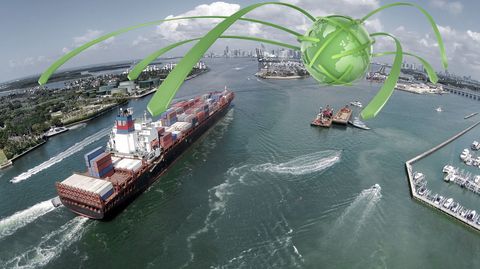Since the election of Donald Trump as president, the US has undergone a significant shift in its international trade policy, with a nation previously known as a prominent champion of globalization and trade liberalization suddenly embracing protectionist sentiments.
One of the controversial Republican's first moves after taking office was to pull the country out of the 12-nation Trans-Pacific Partnership - a large-scale multilateral trade pact the previous administration spent years trying to secure - while a renegotiation of the North American Free Trade Agreement has also begun at the US government's behest, with Mr Trump threatening to terminate the deal entirely unless a new settlement more favorable to US interests can be reached.
In this same vein, the Trump administration has also taken aim at the US-Korea Free Trade Agreement (KORUS), with talks having commenced over another potential renegotiation. However, several points of disagreement have quickly emerged between the US and South Korean governments over the deal, which could make a difficult diplomatic process even more challenging.
Why does the US want to renegotiate the deal?
President Trump has repeatedly described KORUS as a "horrible deal" due to a perception within his administration that the free trade agreement (FTA) has benefited South Korea to a much greater degree than the US, as evidenced by a rising trade deficit between the nations.
Figures from the office of US trade representative (USTR) Robert Lighthizer indicate that since 2011 - the last full year before the March 2012 introduction of KORUS - total US goods exports to Korea have dropped by 2.7 per cent from $43.5 billion to $42.3 billion in 2016. Over the same period, the US trade deficit in goods with Korea has more than doubled from $13.2 billion to $27.6 billion.
These concerns led to Mr Lighthizer calling for the KORUS joint committee special session to discuss implementation concerns and potential modifications to the deal, with the discussion taking place on August 22nd.
Mr Lighthizer said: "Too many American workers have not benefited from the agreement. USTR has long pressed the Korean government to address burdensome regulations which often exclude US firms or artificially set prices for American intellectual property; this negotiation offers us an opportunity to resolve these and other barriers."
Why is South Korea opposing the efforts?
The US has been clear about its hopes for these discussions, but thus far South Korea has proven reluctant to acquiesce due to a significantly divergent view on the benefits and progress of the KORUS deal to date.
South Korean trade minister Kim Hyun-chong said the two sides "have different views on the free trade agreement and have not reached any agreement", with his government instead proposing a joint study to research, analyze and assess the effects of the deal.
The Korean government continues to see the deal as mutually beneficial, pointing to a substantial rise in bilateral trade volumes since its introduction, while downplaying the significance of the current deficit as a marker of the long-term success or failure of the deal.
Is KORUS really the problem?
Meanwhile, economists have called the US government's analysis of the impact of KORUS into question on a number of fronts, with many noting that the deficit increase may have more to do with South Korea entering a recession shortly after the deal was completed in 2011.
It was also observed that the sectors that accounted for the majority of the deficit - electronics and autos - were largely unaffected by KORUS, as trade in electronics was already tariff-free, while auto export numbers began to rise long before tariffs were removed in 2016.
Meanwhile, an analysis from the Korea Institute for Industrial Economics and Trade suggested there has been no statistically significant correlation between the recent rise of Korean exports to the US and KORUS going into effect, suggesting it may simply be too early to properly judge what the long-term impact of the FTA will be.
Nevertheless, with discussions over the deal still ongoing, it could be some time before businesses that depend on strong US-Korean trade links are able to develop a clear picture of how the future trading relationship between the two nations will look.
As such, companies that wish to keep on top of these developments may be well-advised to invest in a tool such as the MIC Origin Calculation System (OCS), as this will allow them to address any legal compliance issues that might arise as the regulatory landscape changes.






